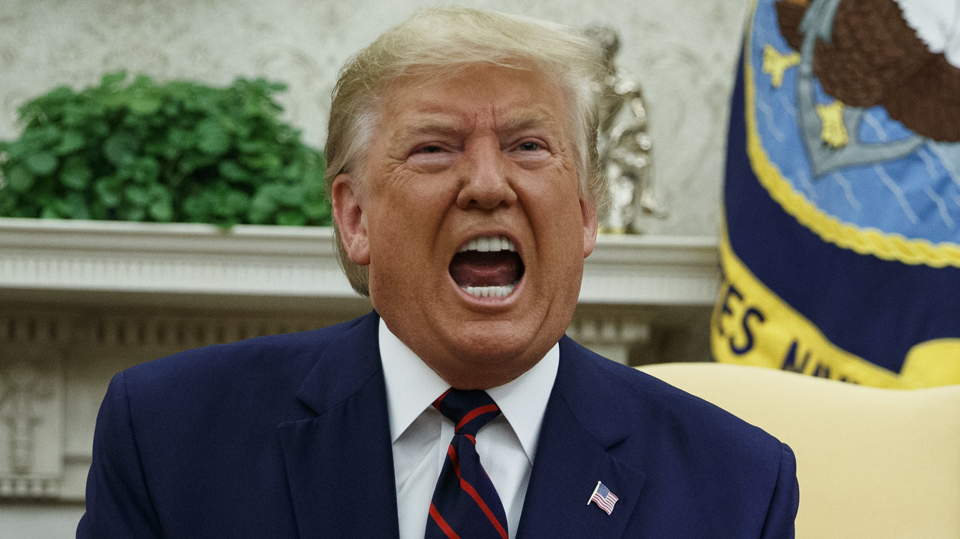
While the Turkish continue to deny this history to this day, in 1915 the nation of Turkey engaged in a genocide of the Armenian people. The mass killing reduced the Armenian population from two million to 400,000.
The denial of genocide, of course, is nothing new; it has a long tradition at home in the U.S. and abroad. We simply need to consider the fact that the U.S. has never owned up to its own acts of genocide against Native Americans. And when it came to Turkey’s massacre of Armenians, the Holocaust, Pol Pot’s reign of terror, Iraq’s killing of Kurds, Bosnian Serbs’ mass murder of Muslims, the Hutu’s extermination of Tutsi’s, the U.S. not only did not deploy forces to intervene, but the government did nothing to deter the crimes. And in the Middle East itself U.S. policies have, as they did in Iraq, resulted in the deaths of hundreds of thousands. Tens of thousands of Yemenis haver died during the last few years alone as a result of U.S. military support for Saudi Arabia’s war against them.
And we can point to many episodes of imperialist behavior, on the part of the U.S. and others, that bear features of genocide and are simply normalized and sanctioned by many nations around the globe, such as the occupation and violence Palestinians endure.
Despite, even because of, this history of denial, though, it is important to continue to name and call out acts of genocide.
While Donald Trump is not alone or unique among American presidents who have allowed or participated in genocidal acts, it is still important to call out his behaviors and policies that, both domestically and internationally, potentially constitute acts of genocide and call for international intervention.
Earlier this month, with the knowledge and approval of U.S. President Donald Trump, Turkey’s President Recep Tayyip Erdogan ordered Turkish troops into northern Syria to commit, effectively, another genocide, this time of the Kurdish people. Some international reporters have, indeed, declared the act an “ethnic cleansing.”
How did Trump respond? Well, he did more than simply respond, apparently. He was, in fact, an active, even pro-active, co-conspirator in this genocidal invasion. All it took was simply a telephone call with Erdogan, and Trump was gung-ho, with no consultation with his military or foreign policy advisors, to pave the way for Turkish forces by pulling out the U.S. forces from the area in northern Syria where they had been stationed precisely to protect and ensure the survival of the Kurdish people, who had fought alongside U.S. forces to defeat ISIS.
The act of handing the Kurdish people up for slaughter, of effectively authorizing and inviting Erdogan’s genocide, was announced by Trump’s press secretary in these words:
“Turkey will soon be moving forward with its planned operation into northern Syria. The United States Armed Forces will not support or be involved in the operation, and the United States forces, having defeated the ISIS territorial ‘caliphate,’ will no longer be in the immediate area.”
Of course, removing forces and denying support and defense previously in place are acts that do most certainly constitute “support” and involvement.
As a reminder, in 1948 the United Nations, in an historic and important moment, drafted its Convention on the Prevention and Punishment of Genocide.
A review of the convention’s salient articles makes clear that not only is Trump complicit in this current act of ethnic cleansing against the Kurds, but also his administration has repeatedly in its policies engaged in genocidal behavior, most blatantly in his immigration enforcement policies, his denial of asylum seekers, and his caging of children and separation of them from their parents.
At a minimum, Trump’s policies and behaviors merit scrutiny in an International Court of Justice.
Here is how Article II of the Convention on the Prevention and Punishment of Genocide defines genocide:
In the present Convention, genocide means any of the following acts committed with intent to destroy, in whole or in part, a national, ethnical, racial or religious group, as such:
- Killing members of the group;
- Causing serious bodily or mental harm to members of the group;
- Deliberately inflicting on the group conditions of life calculated to bring about its physical destruction in whole or in part;
- Imposing measures intended to prevent births within the group;
- Forcibly transferring children of the group to another group.
Certainly, when it comes to the situation of the Kurds in northern Syria, the active and intentional withdrawal of military support and defense at least warrants consideration as an act of “deliberately inflicting on the group conditions of life calculated to bring about its physical destruction in whole or in part.”
When it comes to Trump’s immigration policies, his administration’s order denying immigrants from Central America the right to seek and apply for asylum in the U.S. is also quite arguably an act of deliberately inflicting on these migrants conditions likely to result in their deaths. By many accounts, those people fleeing, in particular, Guatemala and El Salvador, and seeking asylum are escaping conditions of brutal and deadly violence or starvation conditions. Many asylum-seekers deported to these nations have in fact been brutally murdered upon return.
And how about the separation of families? In international law, as we can see in the convention’s language, “forcibly transferring children of the group to another group” constitutes genocide. One might argue that the children aren’t necessarily being transferred to another group, though in some cases the separated children have been placed with other families. At a minimum, though, they have been transferred to the care of U.S. governmental agencies. By some counts, over 2,500 children were separated from their parents, and hundreds remain in that condition.
The determination, of course, of whether or not Trump and his administration is an issue larger than this article and larger than the impeachment process the U.S. Congress can carry out. It is a matter of international law and thus a matter for adjudication in an International Court of Justice.
As The United Nations Office on Genocide Prevention and the Responsibility to Protect, in a guidance note titled “When to Refer to a Situation as ‘Genocide,” clarifies, “it is up to a mandated judicial body to make a legal determination as to whether genocide did indeed occur, and who was responsible.” Thus, the note concludes, “United Nations officials should rely on the determinations of lawfully constituted courts.”
If a “lawfully constituted court” does determine, though, that an act of genocide is being committed, then “the United Nations can advocate for action to prevent, halt and/or punish such ‘alleged’ or ‘possible’ crimes.”
Whether or not Trump’s acts, or any acts, constitute genocide, this guidance note from this U.N. office concludes with an important point:
United Nations officials should not avoid engaging in discussion about the nature of events that may constitute genocide and other atrocity crimes [. . . ]. This means acknowledging serious violations of international human rights and humanitarian law that may have been committed in the past or may be ongoing, including where there has not yet been a legal determination of the type of international crime that may have been committed. United Nations officials have a responsibility to contribute to international dialogue on the causes of genocide and other atrocity crimes and to advance collective efforts to prevent future crimes.
While Trump does need to be impeached, this international discussion of his administration’s policies and behaviors needs to take place in the context of an international legal framework and tribunal of sorts. Our nation’s leaders have proven themselves to be insufficient.










